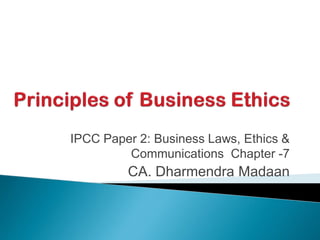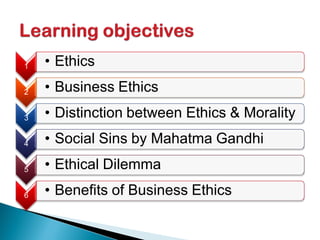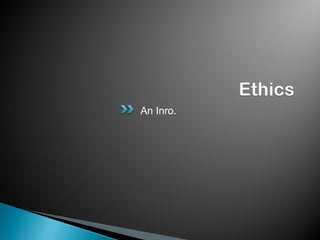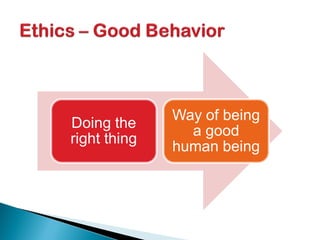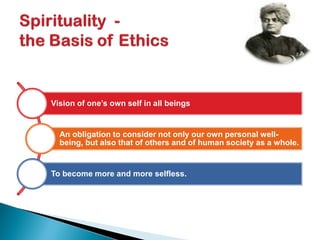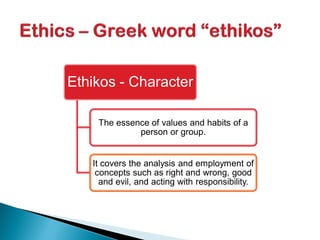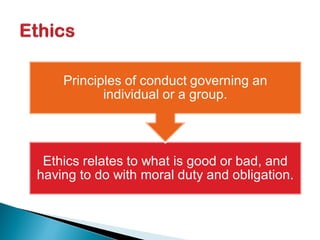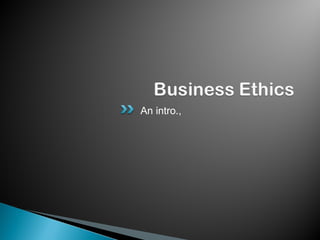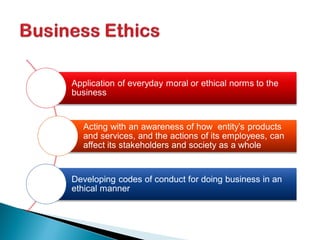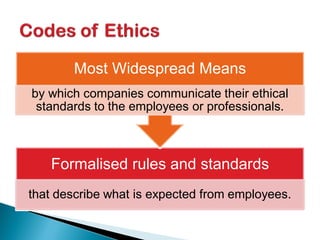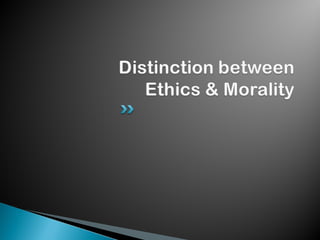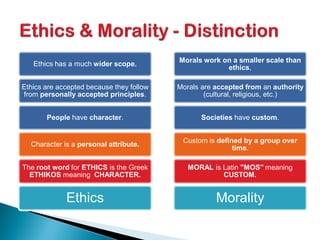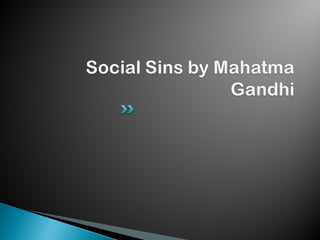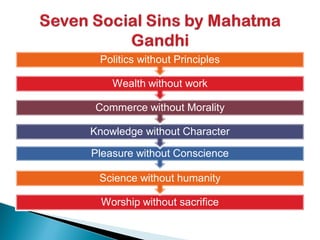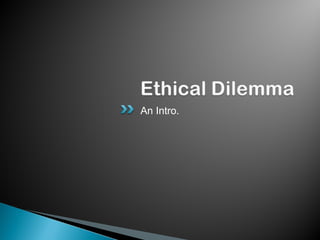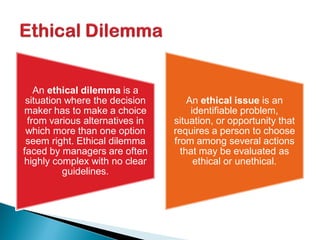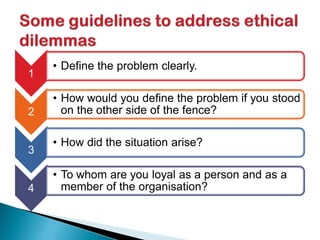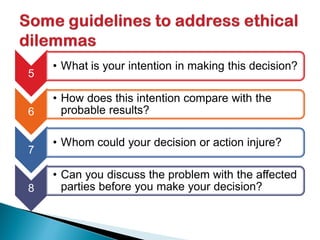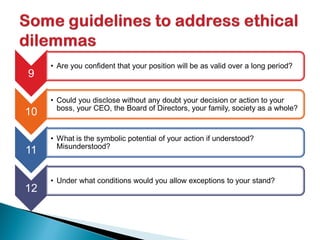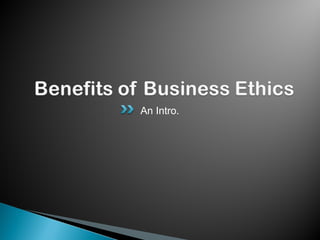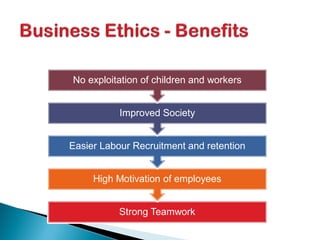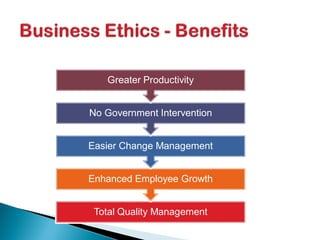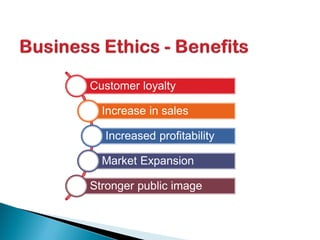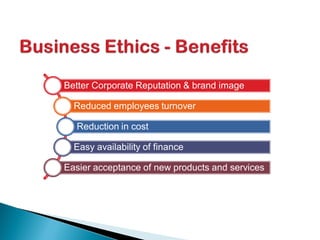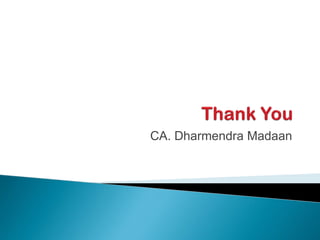P2 ch7principlesofbusinessethics
- 1. IPCC Paper 2: Business Laws, Ethics & Communications Chapter -7 CA. Dharmendra Madaan
- 2. 1 • Ethics 2 • Business Ethics 3 • Distinction between Ethics & Morality 4 • Social Sins by Mahatma Gandhi 5 • Ethical Dilemma 6 • Benefits of Business Ethics
- 3. An Inro.
- 4. Doing the right thing Way of being a good human being
- 5. Vision of one’s own self in all beings An obligation to consider not only our own personal well- being, but also that of others and of human society as a whole. To become more and more selfless.
- 6. Ethikos - Character The essence of values and habits of a person or group. It covers the analysis and employment of concepts such as right and wrong, good and evil, and acting with responsibility.
- 7. Ethics relates to what is good or bad, and having to do with moral duty and obligation. Principles of conduct governing an individual or a group.
- 8. An intro.,
- 9. Application of everyday moral or ethical norms to the business Acting with an awareness of how entity’s products and services, and the actions of its employees, can affect its stakeholders and society as a whole Developing codes of conduct for doing business in an ethical manner
- 10. Formalised rules and standards that describe what is expected from employees. Most Widespread Means by which companies communicate their ethical standards to the employees or professionals.
- 12. Ethics The root word for ETHICS is the Greek ETHIKOS meaning CHARACTER. Character is a personal attribute. People have character. Ethics are accepted because they follow from personally accepted principles. Ethics has a much wider scope. Morality MORAL is Latin "MOS" meaning CUSTOM. Custom is defined by a group over time. Societies have custom. Morals are accepted from an authority (cultural, religious, etc.) Morals work on a smaller scale than ethics,
- 14. Worship without sacrifice Science without humanity Pleasure without Conscience Knowledge without Character Commerce without Morality Wealth without work Politics without Principles
- 15. An Intro.
- 16. An ethical dilemma is a situation where the decision maker has to make a choice from various alternatives in which more than one option seem right. Ethical dilemma faced by managers are often highly complex with no clear guidelines. An ethical issue is an identifiable problem, situation, or opportunity that requires a person to choose from among several actions that may be evaluated as ethical or unethical.
- 17. 1 • Define the problem clearly. 2 • How would you define the problem if you stood on the other side of the fence? 3 • How did the situation arise? 4 • To whom are you loyal as a person and as a member of the organisation?
- 18. 5 • What is your intention in making this decision? 6 • How does this intention compare with the probable results? 7 • Whom could your decision or action injure? 8 • Can you discuss the problem with the affected parties before you make your decision?
- 19. 9 • Are you confident that your position will be as valid over a long period? 10 • Could you disclose without any doubt your decision or action to your boss, your CEO, the Board of Directors, your family, society as a whole? 11 • What is the symbolic potential of your action if understood? Misunderstood? 12 • Under what conditions would you allow exceptions to your stand?
- 20. An Intro.
- 21. Strong Teamwork High Motivation of employees Easier Labour Recruitment and retention Improved Society No exploitation of children and workers
- 22. Total Quality Management Enhanced Employee Growth Easier Change Management No Government Intervention Greater Productivity
- 23. Customer loyalty Increase in sales Increased profitability Market Expansion Stronger public image
- 24. Better Corporate Reputation & brand image Reduced employees turnover Reduction in cost Easy availability of finance Easier acceptance of new products and services

